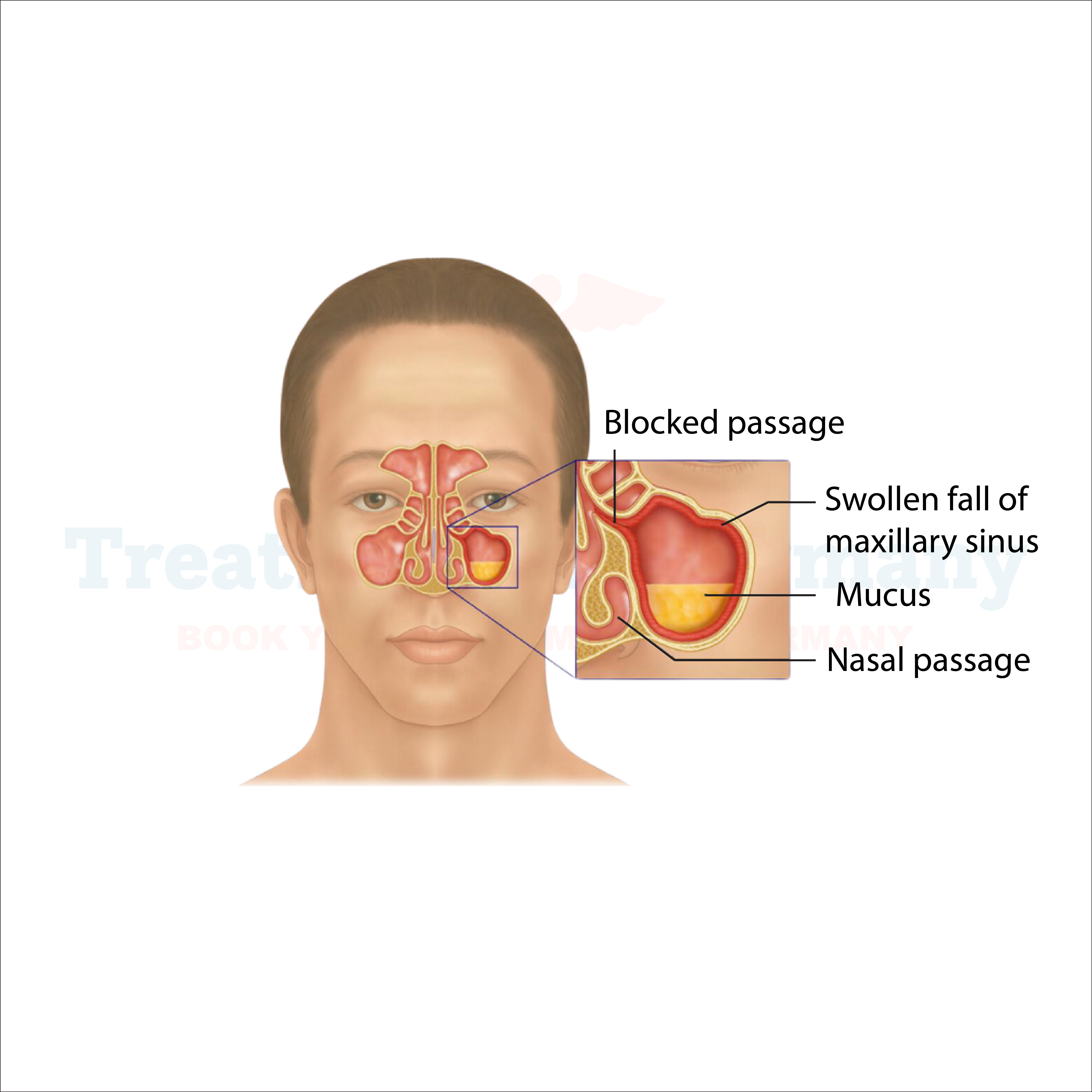What is Rhinosinusitis (Sinus Infections):
Rhinosinusitis, commonly known as sinus infections, is a condition where the nasal passages and the sinuses become inflamed. This inflammation can be triggered by various factors such as allergies, infections, or structural issues in the nasal passages. When the sinuses become blocked and filled with fluid, it creates a breeding ground for bacteria, viruses, and fungi, leading to infection. Rhinosinusitis can be acute, lasting for a few weeks, or chronic, persisting for more than twelve weeks despite treatment.
Side effects of Rhinosinusitis (Sinus Infections):
The symptoms of rhinosinusitis can range from mild to severe and may include:
In chronic cases, symptoms may be less severe but can significantly impact the quality of life due to their persistent nature.
How is Rhinosinusitis (Sinus Infections) diagnosed?
Diagnosing rhinosinusitis typically involves a combination of a physical examination and medical history review by a healthcare professional, often an otolaryngologist (ENT specialist). In some cases, imaging tests such as a sinus CT scan may be ordered to assess the extent of inflammation and blockages in the sinuses. Additionally, nasal endoscopy, a procedure where a thin, flexible tube with a camera is inserted into the nasal passages, may be performed to visualize the sinuses directly.
Potential treatments of Rhinosinusitis (Sinus Infections):
Treatment for rhinosinusitis aims to relieve symptoms, reduce inflammation, and eliminate the underlying cause of the infection. Depending on the severity and duration of the condition, treatment options may include:
1. Nasal irrigation: Using saline solution to flush out the nasal passages and sinuses, which can help clear mucus and reduce inflammation.
2. Nasal corticosteroids: Sprays or drops containing corticosteroids can help reduce inflammation and swelling in the nasal passages, improving breathing and relieving congestion.
3. Decongestants: Over-the-counter oral or nasal decongestants can provide temporary relief from nasal congestion by shrinking swollen nasal tissues.
4. Antibiotics: If a bacterial infection is suspected or confirmed, a course of antibiotics may be prescribed to clear the infection.
5. Antihistamines: For rhinosinusitis caused by allergies, antihistamines can help reduce allergic reactions and alleviate symptoms like sneezing and itching.
6. Surgery: In cases of chronic or severe rhinosinusitis that do not respond to other treatments, surgery may be recommended to improve sinus drainage and alleviate blockages. Procedures such as endoscopic sinus surgery can be performed to remove obstructive tissue and widen the sinus passages.
👉 Contact us for further information and receive a complimentary consultation.


.webp)
 (1).webp)

.webp)
 (1).webp)


.webp)
 (1).webp)

.webp)
 (1).webp)
